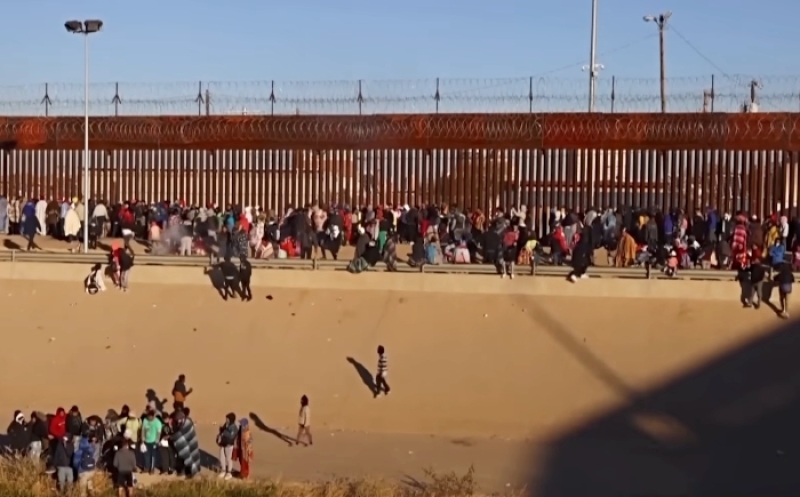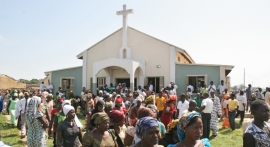
Hispanic Christian leaders are voicing support for a Republican-led immigration proposal, lending strength to the effort.
The National Hispanic Christian Leadership Conference (NHCLC), which represents thousands of churches across the U.S. and the Spanish-speaking world, convened a leadership summit Tuesday at the Museum of the Bible.
From the podium, NHCLC President Samuel Rodriguez encouraged attendees to take to social media in support of the measure, urging them to post, “It’s time for the Dignity Act.” He pledged that the “NHCLC will be issuing a press release with 100 percent unbridled support of the Dignity Act.”
Rep. Maria Elvira Salazar, R-Fla., whose bill currently has 23 co-sponsors, highlighted key provisions and framed her work as a calling, saying, “the Lord was the one who put me here” to “do immigration.”
She also directed remarks to President Donald Trump, asserting that the “same Lord who saved you from death in Pennsylvania [and] put you back in the White House is the same God who is going to guide you to sign the Dignity Act.”
According to Salazar, the Dignity Act aims to protect from deportation illegal immigrants without criminal records who have “been here for more than five years,” though it does not include a pathway to citizenship.
Beyond withholding a citizenship track, the plan would require beneficiaries to pay $7,000 in fines over seven years and contribute 1% of their salary to the federal government, while mandating eVerify for employment eligibility checks.
Procedurally, the legislation remains before the House Judiciary Committee, where it must first secure approval before advancing to a full House vote.
During a panel discussion, Pastor Junior Garcia, a former Immigration and Customs Enforcement agent, noted that some clergy “come in with B1 or B2 visas” and “overstay because they planted a church. Now they’re up to 40, 50 people [and] they have to go back.”
Garcia asked Salazar whether the Dignity Act could provide relief for such cases, potentially overlooking the visa overstay and offering legal residency to pastors who have established congregations.
Responding to that question—and another involving a “pastor who was deported, came back and got married to an American citizen, but he can’t fix his status”—Salazar said she would pursue changes in committee to add a “special provision” that would allow pastors to obtain “Dignity status.”
While suggesting that a Trump endorsement could be pivotal, Salazar pressed Hispanic Christian leaders to mobilize in favor of the bill’s passage.
“I need the Hispanic pastors that are seeing the suffering, the misery that our community is going through, the fear. Kids are not going to school; parents are not going to church, they are not going to the supermarket, they are not catching the bus, they are not going to work,” she appealed.



















